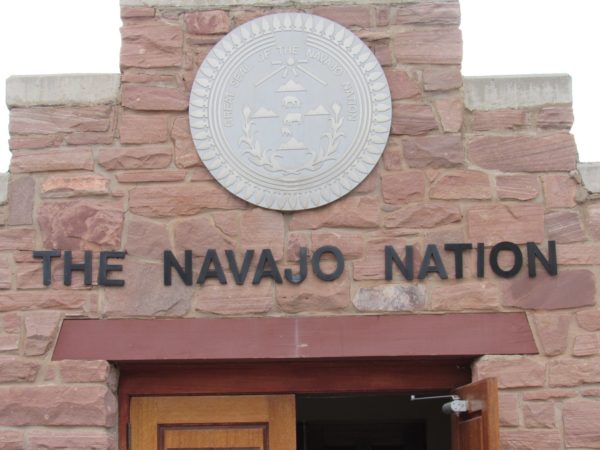
- Details
- By Native News Online Staff
WINDOW ROCK, Ariz. — There were six more deaths reported on Monday by the Navajo Department of Health, in coordination with the Navajo Epidemiology Center and the Navajo Area Indian Health Service. The death toll now stands at 571.
There were 30 new COVID-19 positive cases reported. Reports indicate that 7,343 individuals have recovered from COVID-19, and 112,648 COVID-19 tests have been administered. The total number of positive COVID-19 cases is now 10,728, including two additional cases that was previously unreported due to delayed reporting.
Navajo Nation COVID-19 positive cases by Service Unit:
- Chinle Service Unit: 2,467
- Crownpoint Service Unit: 947
- Ft. Defiance Service Unit: 1,107
- Gallup Service Unit: 1,704
- Kayenta Service Unit: 1,353
- Shiprock Service Unit: 1,637
- Tuba City Service Unit: 1,009
- Winslow Service Unit: 496
* Eight residences with COVID-19 positive cases are not specific enough to place them accurately in a Service Unit.
The Navajo Nation will finalize another Public Health Emergency Order this week to issue a 56-hour weekend lockdown beginning on Friday, Oct. 16 at 9:00 p.m. (MDT) until Monday, Oct. 19 at 5:00 a.m. (MDT). The daily curfew will also be extended from 9:00 p.m. (MDT) to 5:00 a.m. (MDT) during weekdays.
On Monday, the state of New Mexico reported 389 new cases of COVID-19, the state of Arizona reported 475 new cases, and Utah reported 988.
"The public health experts and the Navajo people know how to reduce the number of COVID-19 cases and they know what increases those numbers as well, but it comes down to the choices we as individuals make on a daily basis – to have a family gathering or not, to wear a mask in public or not, to travel of stay home. These are decisions that each of us has to make, but making the right choice can save your life and your loved ones. Please be strong, pray for yourselves, and remember our ancestors who sacrificed for us to be here now. Please stay home as much as possible, wear a mask in public, practice social distancing, wash your hands often, and avoid large gatherings," Navajo Nation President Jonathan Nez said.
On Tuesday, Oct. 13 at 10:00 a.m. (MDT), President Nez and Vice President Myron Lizer will host an online town hall on the Nez-Lizer Facebook page to provide updates on COVID-19. Updates on the 2020 Census will also be provided during the town hall.
For more information, including helpful prevention tips, and resources to help stop the spread of COVID-19, visit the Navajo Department of Health's COVID-19 website: https://www.google.com/url?q=http://www.ndoh.navajo-nsn.gov/COVID-19&source=gmail&ust=1602678919960000&usg=AFQjCNG9_rJVz19osRXE5vm2b9dWZdDRrQ">http://www.ndoh.navajo-nsn.gov/COVID-19. For COVID-19 related questions and information, call (928) 871-7014.
More Stories Like This
Native News Weekly (August 25, 2024): D.C. BriefsNavajo Nation Mourns the Passing of Former Vice President Rex Lee Jim
Deb Haaland Earns Endorsement From Communications Workers of America Local 7076
University Soccer Standout Leads by Example
Two Native Americans Named to Democratic Congressional Campaign Committee's“Red to Blue” Program
Help us defend tribal sovereignty.
At Native News Online, our mission is rooted in telling the stories that strengthen sovereignty and uplift Indigenous voices — not just at year’s end, but every single day.
Because of your generosity last year, we were able to keep our reporters on the ground in tribal communities, at national gatherings and in the halls of Congress — covering the issues that matter most to Indian Country: sovereignty, culture, education, health and economic opportunity.
That support sustained us through a tough year in 2025. Now, as we look to the year ahead, we need your help right now to ensure warrior journalism remains strong — reporting that defends tribal sovereignty, amplifies Native truth, and holds power accountable.
 The stakes couldn't be higher. Your support keeps Native voices heard, Native stories told and Native sovereignty defended.
The stakes couldn't be higher. Your support keeps Native voices heard, Native stories told and Native sovereignty defended.
Stand with Warrior Journalism today.
Levi Rickert (Potawatomi), Editor & Publisher

